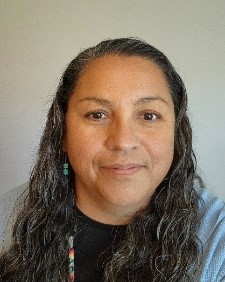IHS announces the observance of January as Human Trafficking Prevention Month. It is a month for all health care providers across Indian Health Service/Tribal/Urban facilities to connect across disciplines, with community partners, and with leaders to focus on prevention efforts and address human trafficking across Indian Country.
Human trafficking (a.k.a. trafficking in persons) is defined as the use of force, fraud, or coercion for a person to provide labor or services (labor trafficking), or to engage in commercial sex acts (sex trafficking). Human trafficking can include forceful participation in criminal activity and can affect individuals of any age, race, gender, sexual orientation, gender identity, religion, disability, citizen status, education level, or socioeconomic status. It can occur in one’s community, without the individual being transported to another location, and traffickers (acting alone or as part of an organized criminal enterprise) can identify as any gender and may be a stranger, acquaintance, partner, or family member. Individuals affected by human trafficking often do not identify as being trafficked.
Due to the immediate and potentially long-term health effects from human trafficking, including physical, psychological, and negative chronic health outcomes, the IHS views human trafficking as a health care issue, and establishes policy for providers to practice to a trauma-informed, responsive workforce.
In 2021, the National Human Trafficking Hotline received 10,360 reports of human trafficking situations involving 16,710 individual victims. Of these reports, 160 were listed as American Indian/Alaska Native/Indigenous American. Many challenges such as lack of resources, fear of reporting to law enforcement, or engaging with the criminal justice system exist within Indian Country, and as it relates to the collection and reporting of data specific to the prevalence of human trafficking of AI/AN individuals.
Federal and tribal partners continue to work diligently at addressing human trafficking and support strengthening prevention efforts. Collaborating across disciplines and with community partners allow a comprehensive, culturally-responsive, and trauma-informed approach with every individual at every encounter, enhancing the ability to develop a trusting relationship and meet the complex, unique needs of individuals affected by human trafficking and other forms of violence.
Helpful Information:
- If you or someone you know is affected by human trafficking, contact the National Human Trafficking Hotline to report a trafficking tip, for resources to stay safe, and other resources. Confidential 24/7 Help is available by phone: 1-888-373-7888, TTY: 711, Text 233733, Online chat, or email help@humantraffickinghotline.org
- National Human Trafficking Training and Technical Assistance Center (NHTTAC) – training/technical assistance (T/TA) to inform and enhance the public health response to human trafficking.
- HHS 2024 Human Trafficking Prevention Month Toolkit – HHS, Office of the Administration for Children and Families (ACF).
- Tribal Law & Policy Institute: Sex Trafficking in Indian Country Advocacy Curriculum
- National Action Plan to Combat Human Trafficking (NAP) – December 2021.
Provider Resources:
- The IHS Forensic Healthcare webpage houses a provider guidebook, forensic-related health topics, programs and initiatives, provider resources, training, policies, and to sign up for the Forensic Healthcare Listserv.
- The IHS recently awarded a 5-year contract to Texas A&M University Center of Excellence in Forensic Nursing to provide education, training, and mentoring resources to boost forensic health care related workforce activities across all I/T/U facilities. Through this contract, training modules specific to human trafficking are being developed by Nurses United Against Human Trafficking (NUAHT) and will also soon be available to I/T/U providers.
- SOAR online training is designed to help those in health care or social services learn to recognize and respond to human trafficking. The SOAR for Indigenous Communities training is for those working with human trafficking in indigenous communities by understanding the issues surrounding human trafficking, how to identify and respond to people who are at risk or have experienced human trafficking in a trauma-informed manner.
- Adult Human Trafficking Screening Tool and Guide – Training Guide for health professionals to use trauma-informed and survivor-informed assessment and care practices.
- Braun, B. (2022). Human trafficking awareness in the emergency care setting [Joint position statement]. Emergency Nurses Association and International Association of Forensic Nurses. Human Trafficking Awareness in the Emergency Care Setting ENA/IAFN Joint Statement.



